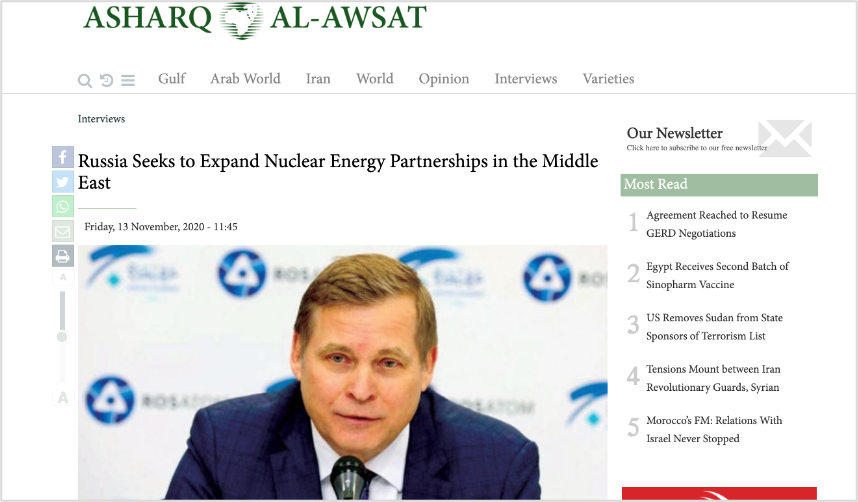
Rosatom’s regional director, Alexander Voronkov, told Asharq Al-Awsat that cooperation with the countries of the Middle East and North Africa “has always been among the company’s priorities.”
“The region is growing actively today, and is witnessing an increase in GDP and population growth, and a rise in living standards in most of its countries,” he stated. He noted that the countries of the region needed a stable source of electrical energy to maintain their growth rates and address the challenges of sustainable development. “Therefore, the interest in nuclear energy is quite clear,” he remarked.
He pointed out that Rosatom Corporation was currently implementing the two largest projects to build nuclear power stations, one in Turkey and another in Egypt.
“In addition to these two projects, we have important cooperation with Jordan on the technology of low-capacity nuclear power plants, and we are participating in a competitive dialogue in order to obtain the right to build a nuclear power plant in the Kingdom of Saudi Arabia,” Voronkov revealed.
Moreover, 59 students from the Middle East are receiving education at Russian universities as part of the courses that Rosatom provides to foreign citizens in nuclear and related disciplines, while the company plans to support about 30 more students this year, he said. After completing their studies, graduates get jobs in institutions and organizations operating in the nuclear sector in their countries. Despite the great instability that Russia witnessed after the collapse of the Soviet Union, the nuclear sector was granted a special attention, being “one of the major achievements that the country could not neglect,” Rosatom Director-General Alexey Likhachev stated.
He stressed that the goal of the Russian nuclear sector was to achieve global technological leadership by 2030, not only in the nuclear industry, but also in the fields of manufacturing, renewable energy, hydrogen energy and nuclear medicine.
Source: ASHARQ AL-AWSAT
